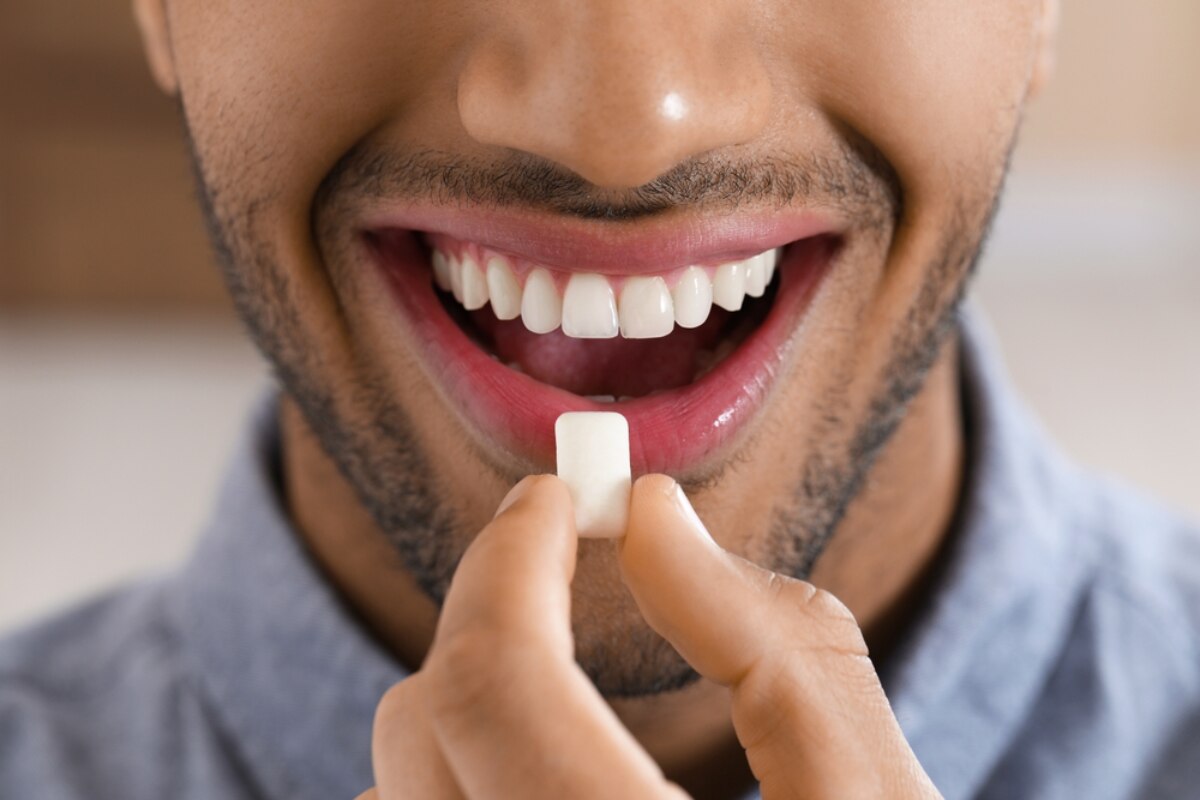
Chewing gum is a part of the daily routine for many. It will keep you alert, make your mouth feel clean, or soothe your nerves. But what would happen to your teeth? Let’s break it down.
What Do Dentists Say About Chewing Gum?
A lot of people ask their Spruce Grove dentist if chewing gum is good or bad for the teeth. It depends on what kind of gum you chew and how frequently you do it. Dentists typically stick to sugar-free gum being a positive influence but normal sugary gum being a bad influence.
A quick visit to your dentist will enable you to make smart choices regarding the kind of gum that you wish to use and how frequently.
Dentists advise being careful with ingredients; one of the preferred ones is a gum with xylitol, since it has a cavity-preventing quality.
Is Chewing Gum Good or Bad for Teeth?
You might ask, Is chewing gum good or bad for your teeth? Let’s keep it simple:
Chewing gum is good when:
- It’s sugar-free
- You chew it after meals
- It stimulates saliva production
- It prevents dry mouth effects
Chewing gum is bad when:
- It has sugar, which feeds bad germs
- You chew too frequently or with excessive force
- It gives your jaws pain or strain
- It becomes a substitute for proper oral health habits
So, if you select the proper gum and don’t overdo it, chewing is a good oral habit. Always balance gum chewing with brushing, flossing, and regular dental visits.
What Are the Effects of Chewing Gum on Oral Health?
Understanding the effects of chewing gum on oral health is important. Chewing sugar-free gum stimulates saliva.
This helps rinse away food particles and acids left behind after eating. Saliva also strengthens tooth enamel by carrying calcium and phosphate.
However, chewing too much gum can:
- Strain your jaw muscles
- Causes headaches or jaw pain
- Lead to clicking or popping in the jaw (TMJ symptoms)
- Aggravate existing dental work or orthodontic appliances
It’s best to chew for short periods and avoid gum if you’re already experiencing jaw discomfort or have been diagnosed with TMJ disorder.
What Are the Benefits of Sugar-Free Gum?
One big reason people chew gum is for the sugar-free gum and dental benefits. When you pick gum with xylitol or other natural sweeteners, it helps in several ways:
- Fights cavity-causing bacteria by starving them of sugar
- Increases saliva to wash away food and acids
- Reduces bad breath
- Can help with dry mouth or xerostomia
- Supports enamel remineralization
Pro tip: Look for gum with the “ADA Seal of Acceptance.” This means the gum is proven to be safe and effective for oral health. Avoid gums with artificial colouring or synthetic sweeteners if you’re sensitive to additives.
Does Chewing Gum Help Clean Your Teeth?
You may ask, Does gum help clean your teeth? The answer is yes, but only to a point.
Chewing sugar-free gum after meals can help remove some leftover food particles and neutralize acids. But it doesn’t replace brushing or flossing.
Here’s what chewing gum can do:
- Stimulate saliva to rinse the mouth
- Slightly reduce plaque and acids
- Temporarily freshen breath
What it can’t do:
- Remove deep plaque or tartar
- Clean between teeth effectively
- Replace your toothbrush, floss, or professional cleanings
Think of gum as a “support act,” not the main performer in your oral health routine.
What Are Smart Tips for Safe Gum Chewing?
To enjoy the benefits of gum without harming your teeth, follow these tips:
- Choose sugar-free gum with xylitol or similar safe sweeteners
- Limit gum chewing to 20 minutes after meals
- Avoid gum if you have jaw pain or TMJ issues
- Don’t give gum to young children
- Don’t rely on gum as your only oral care method
- Ask your dentist what gum brands they recommend
If you’re unsure whether gum is right for you, a dentist can give guidance based on your dental history and current needs.
Can Gum Help with Stress or Focus?
Yes! Studies have shown that chewing gum can have mental benefits. It can reduce feelings of stress and help you stay alert. Some students or workers use gum to concentrate better during long study sessions or shifts.
However, while this may help with productivity or anxiety, remember not to over-chew, especially if you’re prone to jaw discomfort.
Should You Chew Gum for Your Teeth?
Chewing gum can support your oral health, but only when done the right way. Sugar-free gum helps produce saliva and freshen breath. But it’s not a substitute for good brushing, flossing, and dental care. Use it as a helpful add-on, not a replacement.
Looking for Professional Advice About Your Oral Habits? Visit Blossom Family Dental to get personalized guidance on how to protect your teeth.
Our team is happy to help you make smart choices for your dental health.
